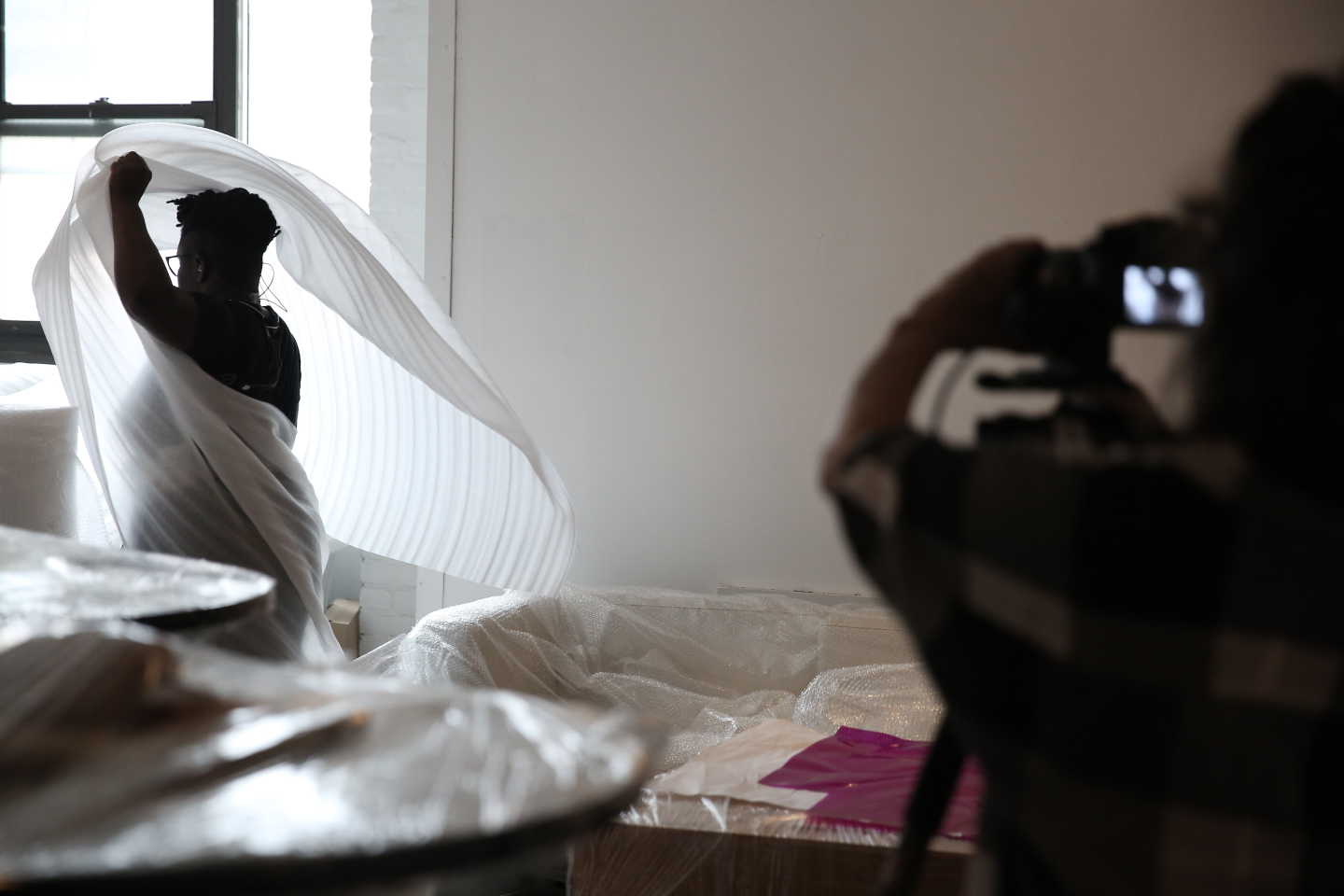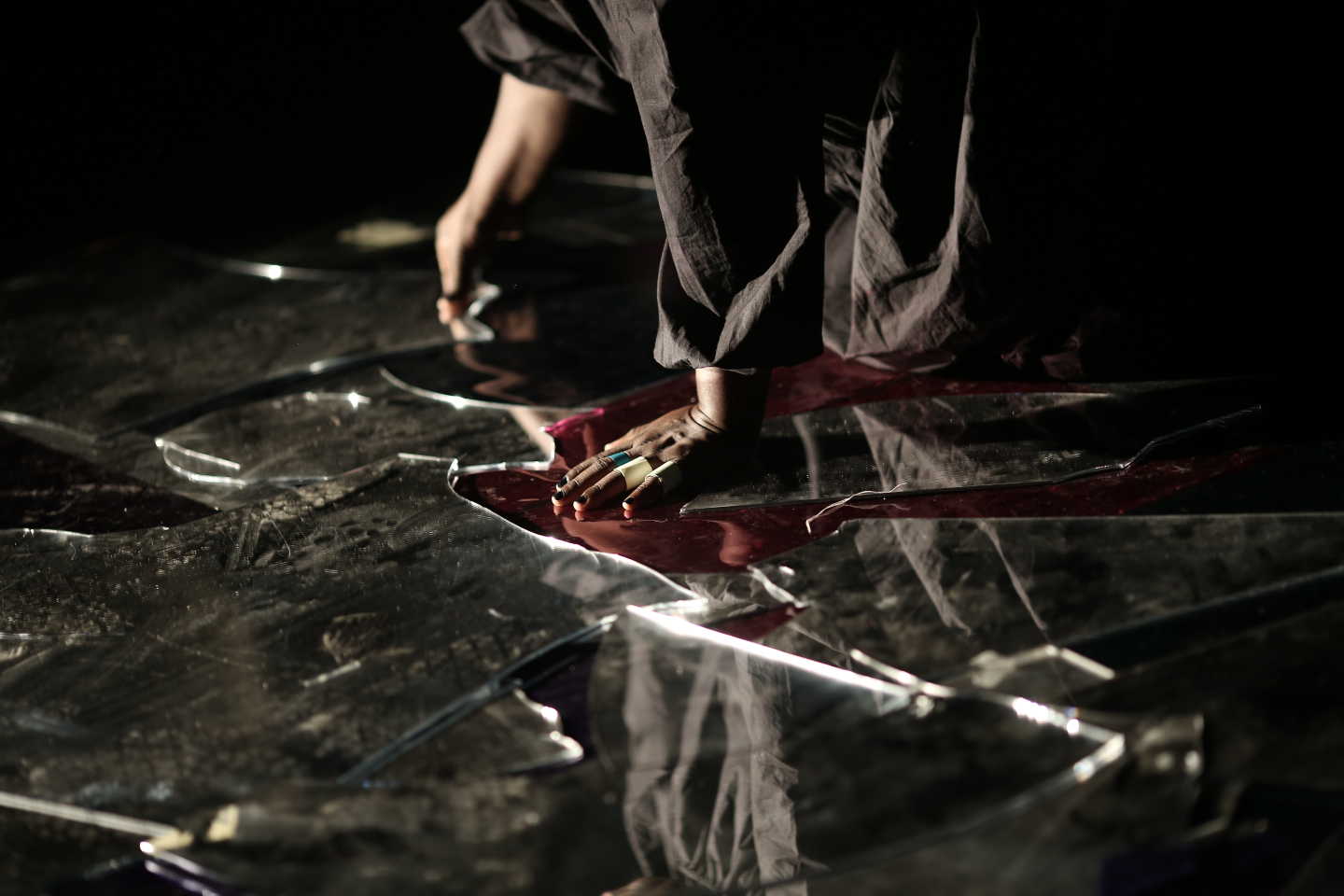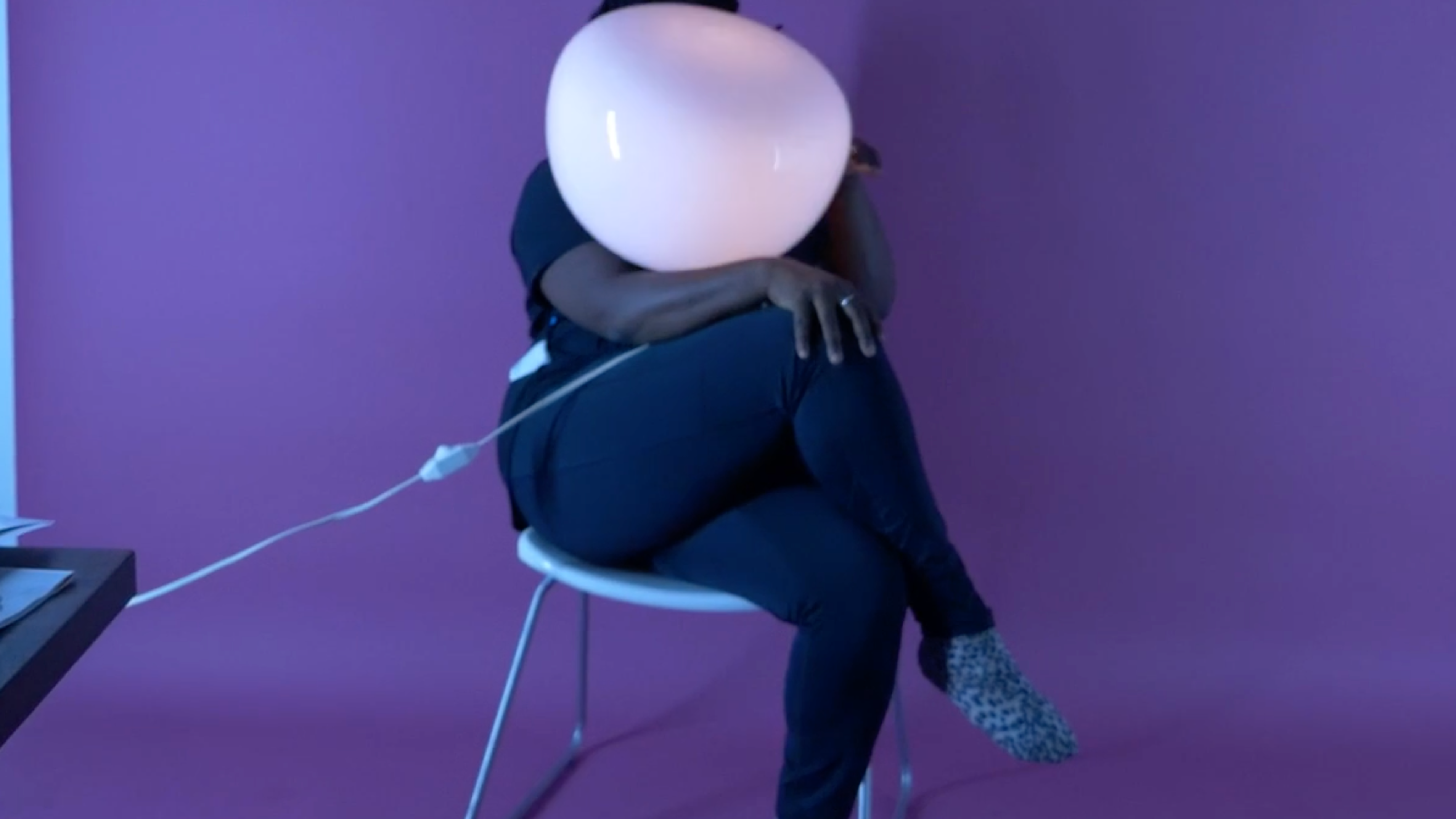
Credits:
By Tennille Mack, Summer 2020 Curatorial and Engagement Intern
August 7, 2020
Autumn Knight’s residency in The Kitchen’s building at 512 West 19th Street is an example of an artist interacting with the realm of the unknown—a realm that has become far too familiar with the unpredictable changes that the pandemic and uprisings have caused. For Knight, this element of uncertainty within her work has always been present due to its interactive nature, which results in a wide range of responses from the audience that then shift the artist’s presentation.
The residency includes a total of three livestream performances: the third and final one premieres tonight, on August 6 on The Kitchen OnScreen and on Twitch. As she has approached these performances, the constant factors that have remained across them are the elements of contemplation and utilization of the body as a tool of connectivity. In a recent conversation I shared with Knight, she acknowledged the components that have shaped her performances prior to this residency. As a collective audience for the livestreams, we now have the opportunity to explore not only the ambiguity of life alongside Knight but also the intersections that unite society. This interview provides a further look into Knight’s methods for adaptation and navigation of space, and her perspective on her own identity.

While you were coming of age in Texas, what were some components of your environment that inspired you? And how did those inspirations lead you to your areas of interest?
I was fortunate enough to attend great public schools in Houston, Texas with intensive art programming. For high school, I attended HSPVA (High School for the Performing and Visual Arts), a nationally renowned conservatory-style public high school. The year I started, the predominantly white school saw a huge influx of Black students. Being surrounded by exceptional Black dancers, artists, musicians, and performers at an early age was invaluable to my development as an artist.
As an interdisciplinary artist working with performance, text, video, and installation art, what have been driving factors for maintaining fluidity between these different mediums in your execution of new ideas?
I view these forms as materials that I have access to at any moment of the creative process. The more I work within a particular medium, the more I learn how to utilize and manipulate it.
Has the centering of your body directly in your art shifted how you place yourself within the world?
My hope is that my vision, queries, and concepts are what is centered and foregrounded in my work.
Your recent published catalog Autumn Knight: In Rehearsal documents your performances that address the regulation of African American female bodies. How has your journey addressing this regulation caused you to reimagine your own body in America?
The performances from the In Rehearsal exhibition [at Krannert Art Museum in 2017] address a number of phenomena—one of which is the way that Black femmes hold, take up, are given and denied positions of authority in various spaces. My journey through examining and addressing this social behavioral dynamic is that I carry with me the historically inherited and future potential of this power.
As an African American female artist, how have you ensured that your message does not get overshadowed by your race & sexuality when performing?
I cannot ensure this.
Has the pandemic caused you to reassess your ideation process, and how has this shifted the continuation of ongoing projects?
There is obviously more time now. Responses to the pandemic—both public and personal—have unearthed latent fears, desires and expectations, and have reoriented value systems. Many of my projects are ongoing and evolve with new audiences, new geographies, new news.
How has the implementation of new technologies—specifically the live streaming platform—shifted your interactions with the viewers of your performances?
Moving to the digital space motivated me to think more critically about what concepts, gestures, ideas are at the core of my body of work. In my live work, the physical/verbal/emotional feedback loop is critical to the flow of information within the performance. With this project’s format, I have been encouraged to shift to focus more on the “action” as opposed to the “interaction.” There is sharing from my direction; however, the next moment is not dependent upon an exchange with an audience. Perhaps the feedback loop is internalized? And this points me in the direction of the inner eye.


Your current residency at The Kitchen utilizes unused space in the institution’s building. How have you approached giving identity to these currently abandoned spaces?
My objective is to inhabit the space as a guest, as a visitor. Now maybe I’m a particular type of guest, one that goes up in your fridge and puts their feet on your couch…
The space has its own identity, history, and influence.
As life operates in cycles, injustice uprisings will continue to mobilize until equity is implemented in all facets of society. What forms of protest in your work have been essential for personal liberation?
In my work, I try to address shifts in perception as they are happening. Perception of myself, of others, of systems, objects, space, time, etc. This sharpening of observation keeps me focused on what I think is happening rather than what SHOULD happen or what I WISH was happening. Verbalizing this allows for a collective understanding of the moment. Also: DOING what I WANT—understanding that no one outside of myself can and will make the art that comes from my research, experimentation, and experiences.

